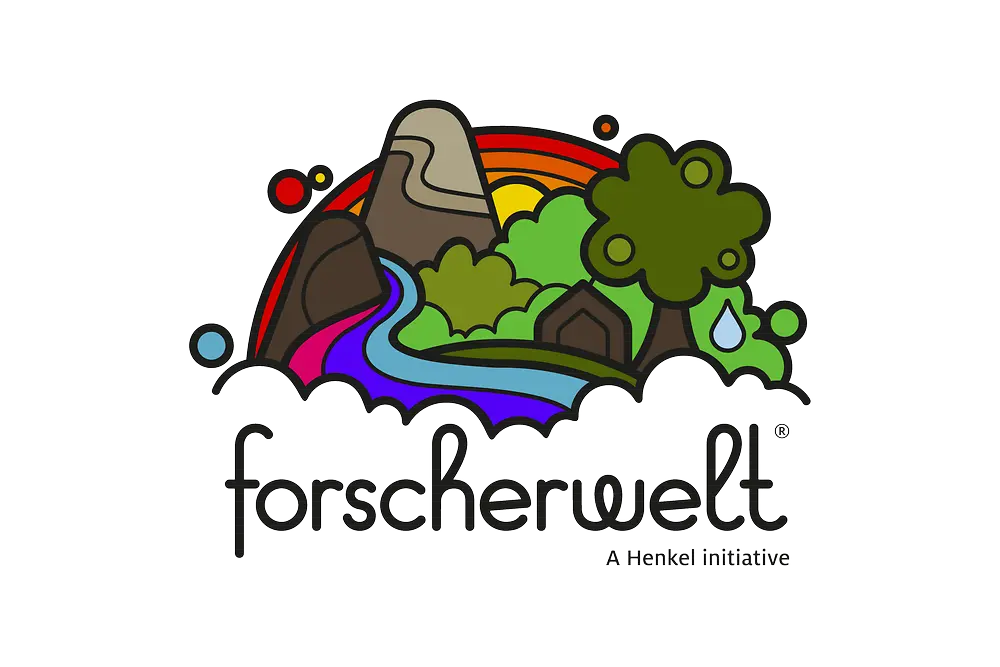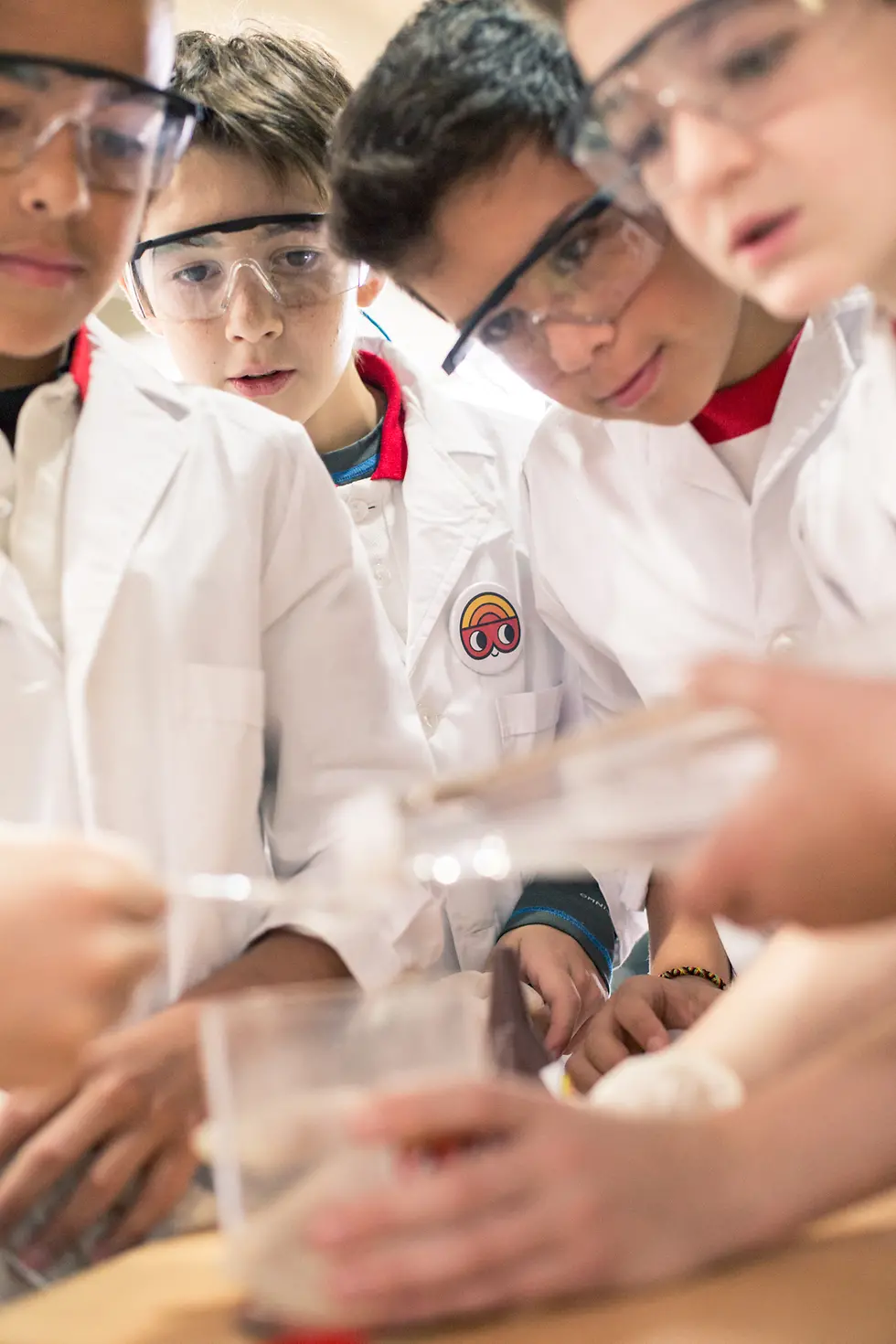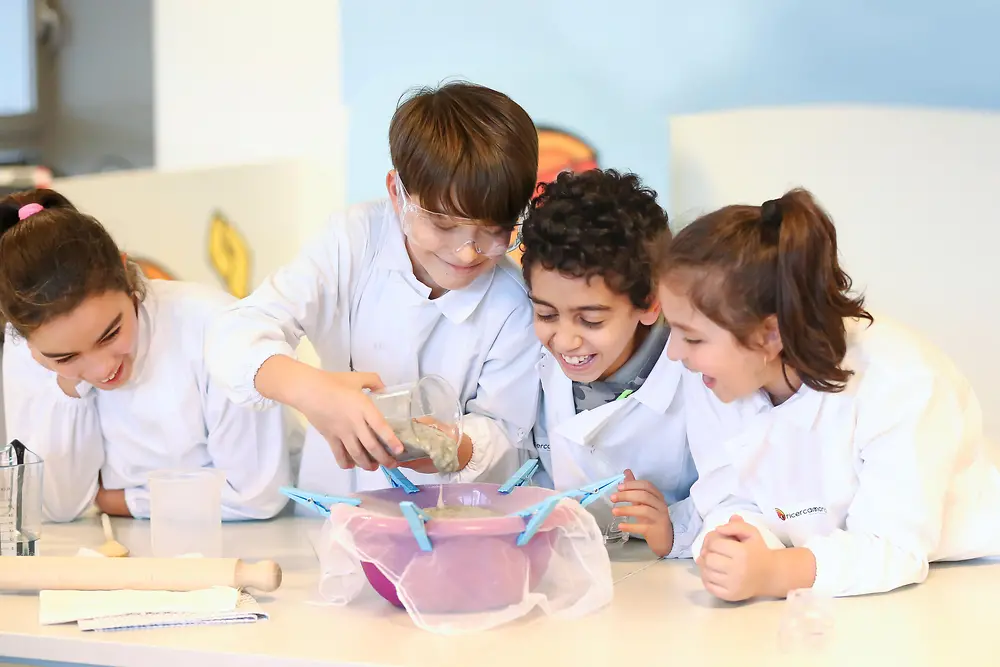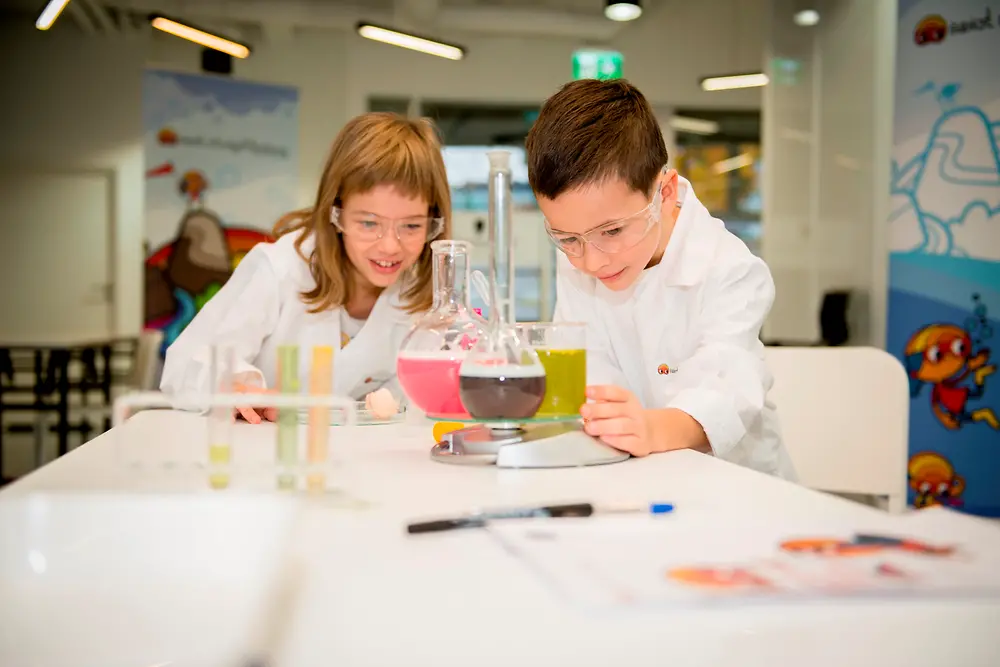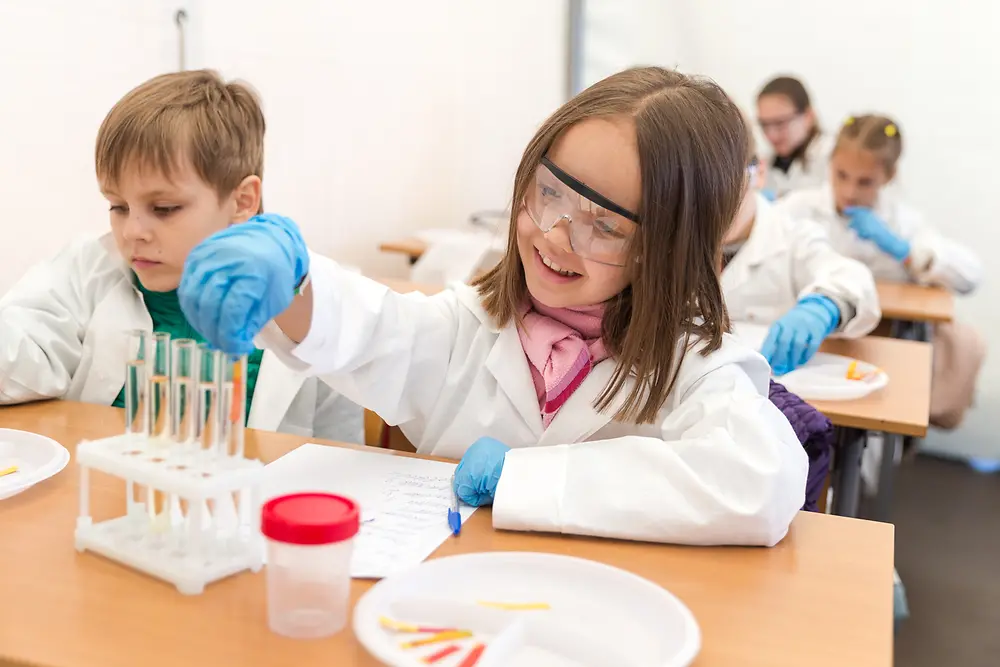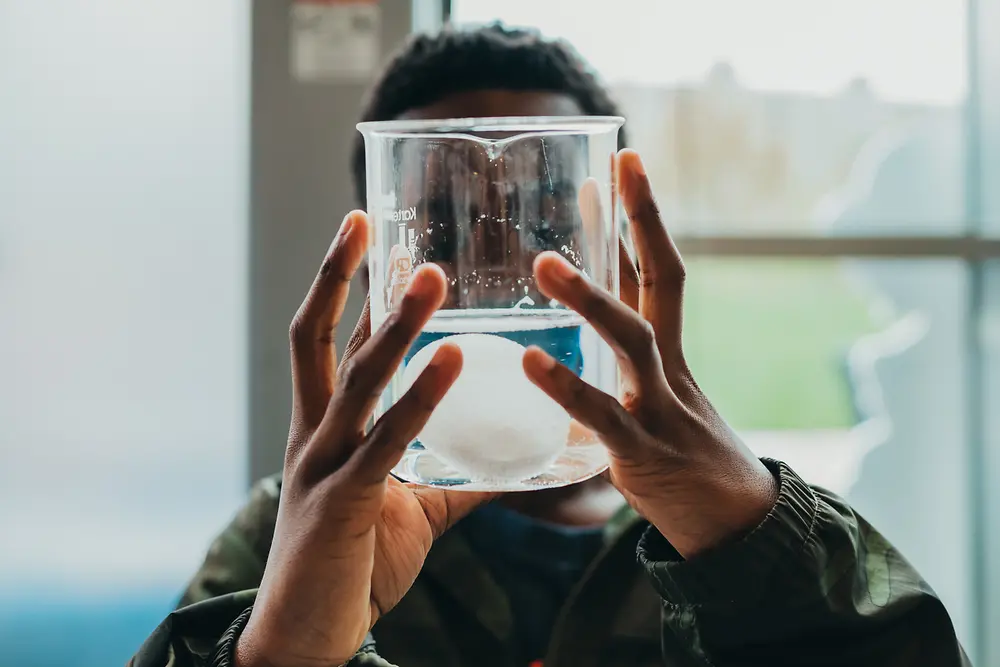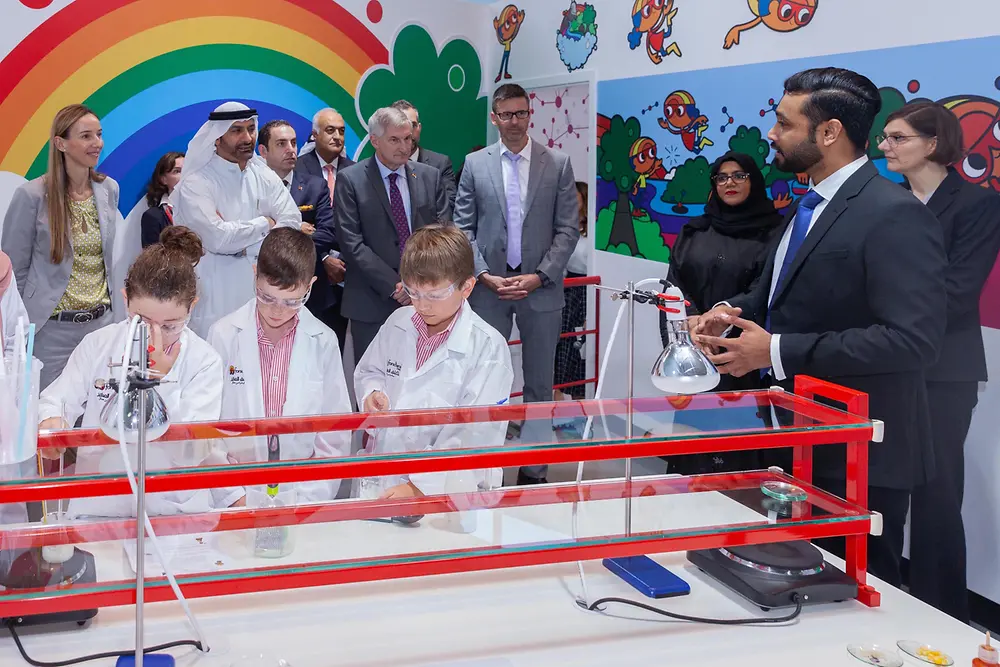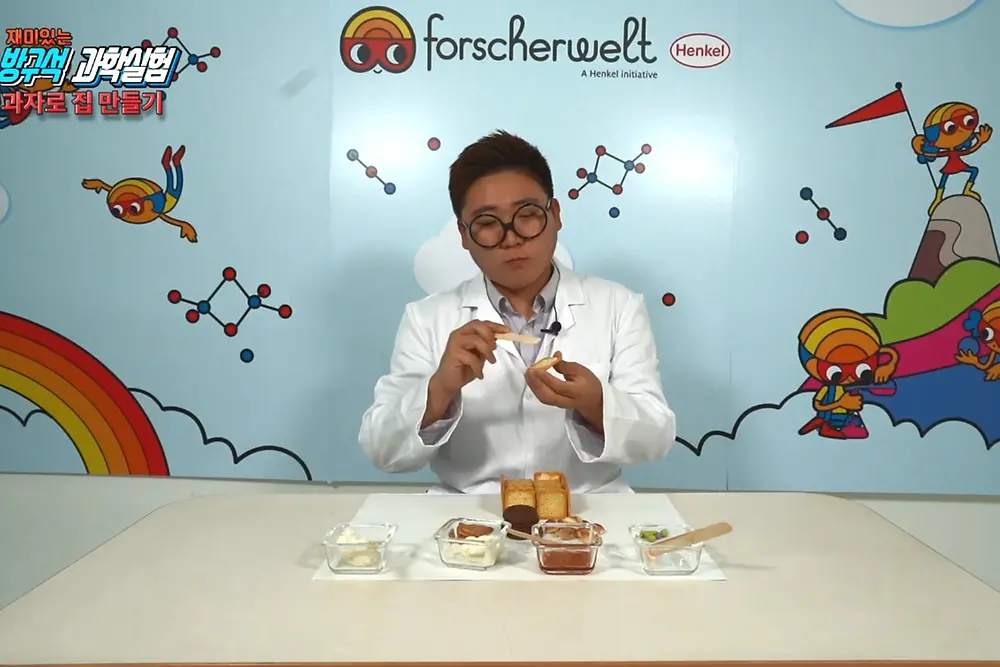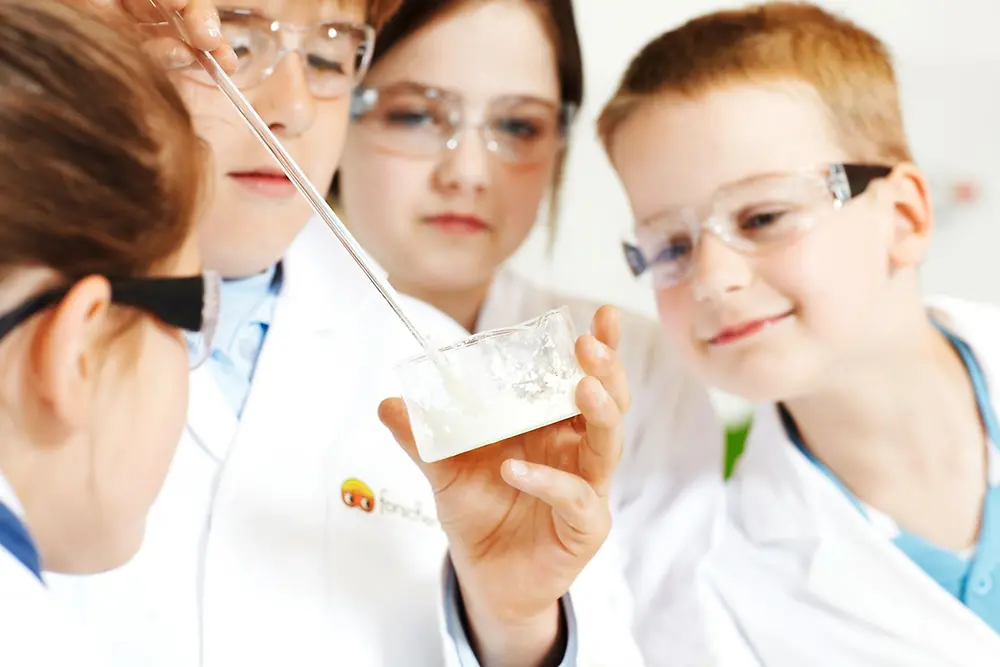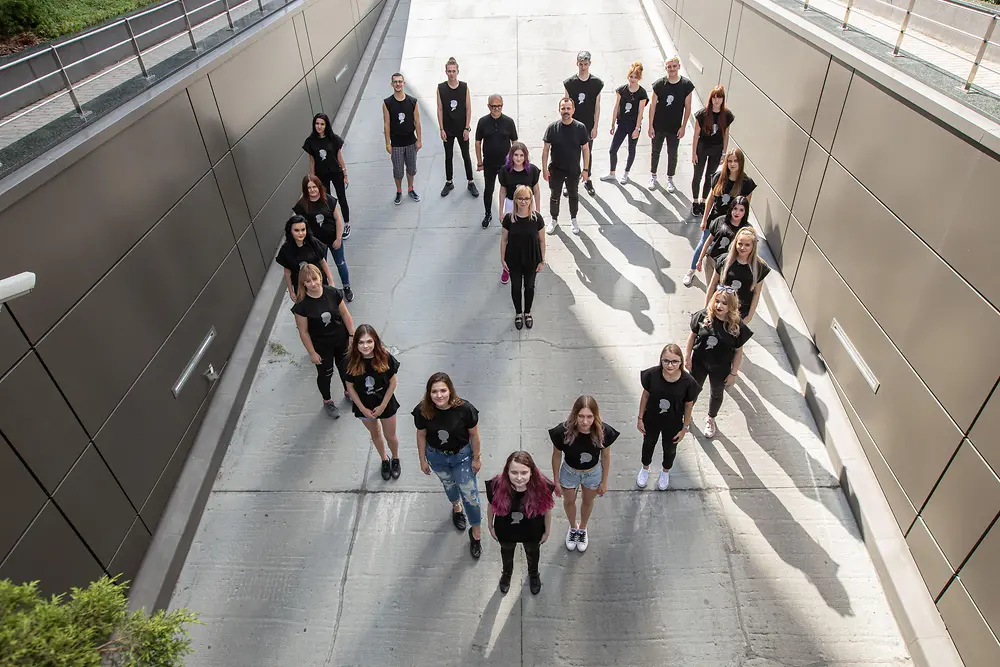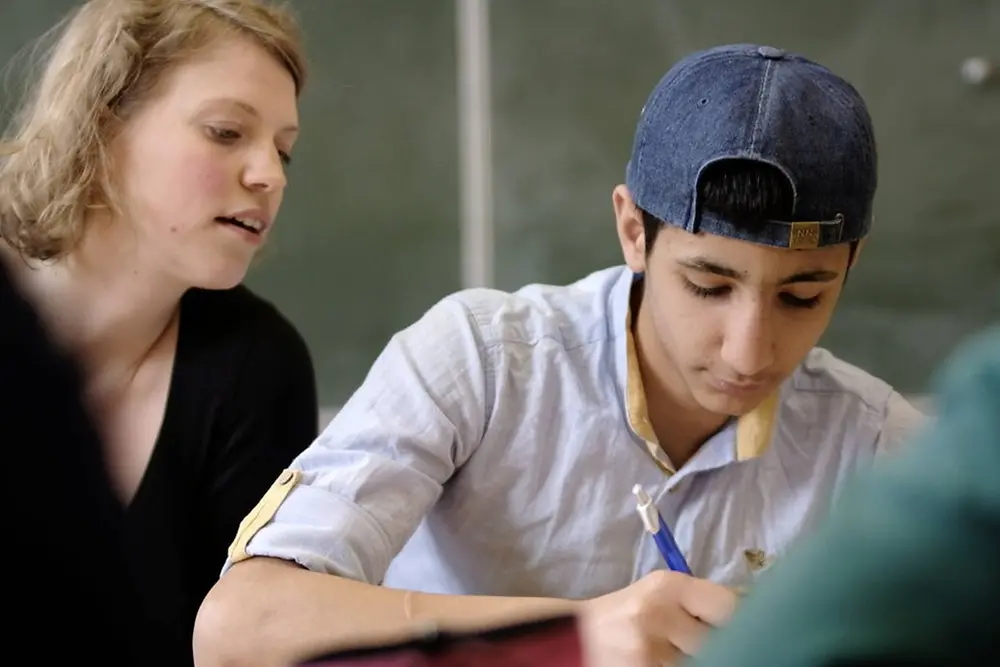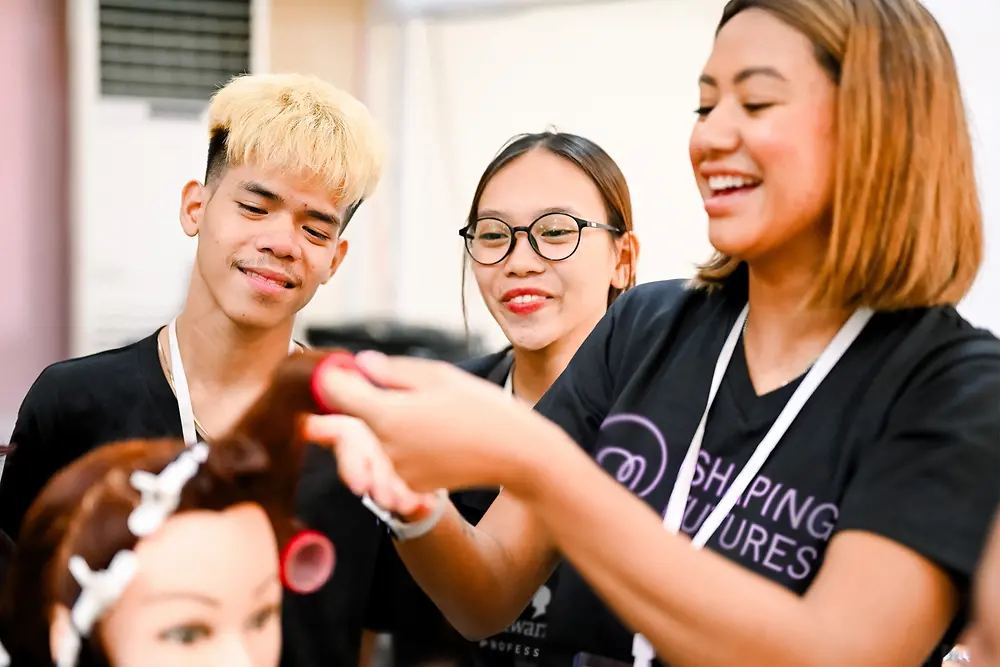Discover the brands and technologies from our business units Henkel Adhesive Technologies and Henkel Consumer Brands.
A journey around the 'Forscherwelt'
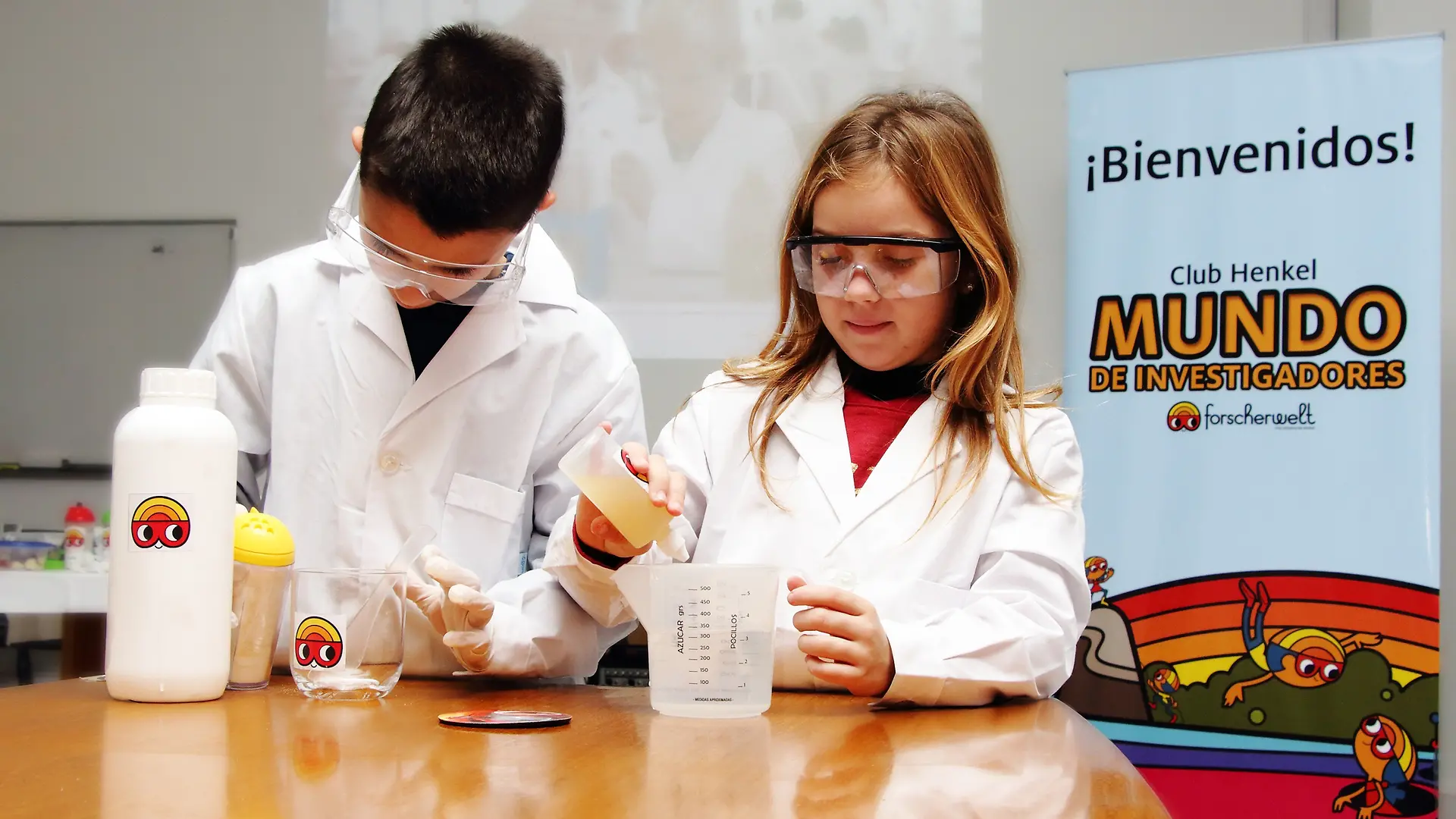
In this story, you will learn:
Ten years ago, in April 2011, Henkel founded its education initiative 'Forscherwelt' (Reseachers’ World). It all started at the company’s headquarters in Düsseldorf, where Dr. Ute Krupp developed the initiative to awaken children's curiosity about science, technology, engineering and mathematics (STEM). The 'Forscherwelt' in Düsseldorf has been the heart of the education initiative ever since. However, in the last decade, the initiative has grown and reached more than 62,000 children worldwide. The expansion process started in 2014, when Russia became the first international location to offer 'Forscherwelt' classes, closely followed by classes in Argentina. 'Forscherwelt' courses have now been held in 13 countries – with more locations joining every year.
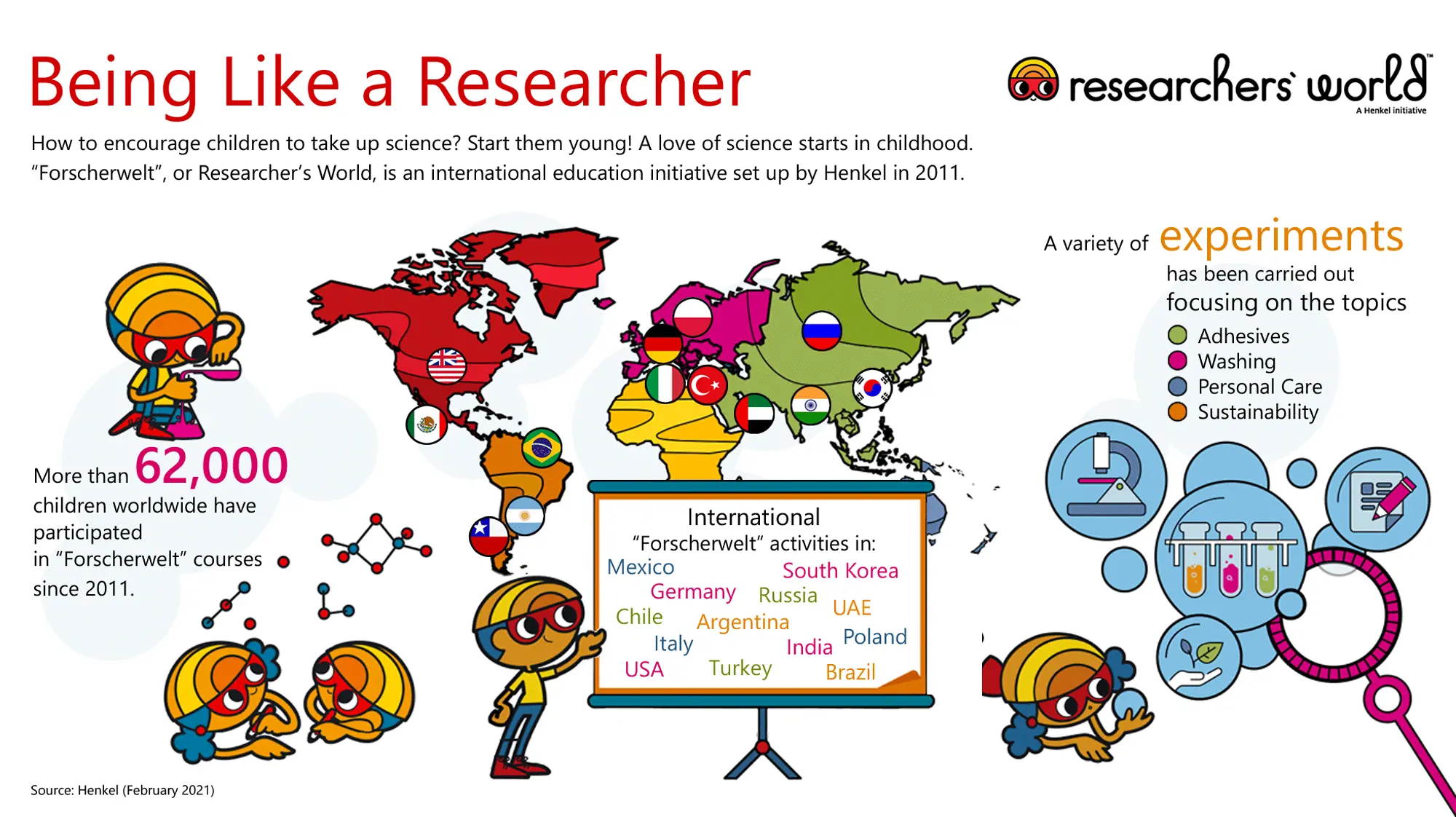
What does the initiative look like around the world?
Since it was launched in 2011, many 'Forscherwelt' classes have taken place all around the globe. Let’s take a look at the different locations worldwide and discover the range of activities offered as part of this initiative.
Russia
When it was launched in 2014, the Henkel 'Forscherwelt' in Russia was one of the first international locations participating in this initiative. Due to a partnership with the Moscow State Palace for Youth Creativity, one of the most renowned educational centers for kids, the 'Forscherwelt' initiative in Russia now has access to a permanent lab and professional tutors who lead the lessons. More than 5,500 children have participated in lessons held at this location, as well as open classes at schools, lessons at Henkel sites and at special events. “It's amazing to see how the children's eyes light up when they learn something new and interesting. And when they conduct experiments with their own hands, there is no limit to their happiness,” says Galina Timonina, External Communications Manager at Henkel and part of the 'Forscherwelt' project team in Russia.
The Russian 'Forscherwelt' projects have received internal and external recognition as a leading example of this initiative in action – and they have also had a lasting impression on the kids who attend. More than 60 percent of the participating children have returned to the 'Forscherwelt' for more classes. “It is so important to expose kids to science at an early age. With 'Forscherwelt', we’ve sparked kids’ interest in natural science and ecology. This new generation is our future!” says Natalia Ovakimian, Head of Corporate Communications Russia.
North America
In 2020, the 'Forscherwelt' initiative was introduced in North America, when Henkel teamed up with two non-profit organizations in Stamford, US. The Henkel 'Forscherwelt' curriculum sparked excitement for topics including sustainability, responsible consumer habits, recycling, and more. As it was launched during the COVID-19 pandemic, the team adapted the experiments into a hybrid format featuring a series of virtual lessons conducted via Zoom that led up to an outdoor event in the park, when it was safe for everybody to attend. “Overall, we held seven 'Forscherwelt' classes. It was wonderful to see the students’ curiosity about science emerge as they progressed from the Zoom lessons to the lab experience during our on-site event,” says Lee Anne Fernandez, Corporate Communications Manager at Henkel North America and part of the 'Forscherwelt' project team in Stamford. The feedback has been overwhelmingly positive: “I did not know science could be that much fun!” one student said.
Dubai
In November 2019, Henkel opened its first permanent 'Forscherwelt' science lab for children in Dubai. Created in partnership with the Dubai Municipality’s Children’s City, the lab was set up to encourage curiosity among children in Dubai and is the largest global 'Forscherwelt' location. The new, purpose-built science center is the first of its kind in the Middle East. The lab welcomes local children and school groups to 45-minute modules that are free to attend.
South Korea
South Korea joined the 'Forscherwelt' initiative in 2020 with a digital pilot project. A range of simple and fun science experiments were introduced through video sessions and interactive virtual classes. These science experiments are easy enough to be recreated at home, which encourages the children to actively participate. “Children of employees, as well as any children who have applied for our digital 'Forscherwelt' program, can participate in the online sessions. We also sent out 300 science kits for our experiments to children in underprivileged families, to help them obtain scientific knowledge and enjoy the fun experiments at home,” says Michelle Kim, Head of Corporate Communications in South Korea. Starting the 'Forscherwelt' in South Korea as a digital project was especially important when the first wave of the COVID-19 pandemic hit. “We want children to have fun while learning from home. While most of the traditional face-to-face classes were disrupted by the sudden outbreak of COVID-19 in 2020, this online class aimed to help them keep learning during the pandemic.”
In November, Henkel and the Science Foundation in South Korea collaborated for a special online program for the South Korean Online Youth Science Festival, and invited 500 children to join a digital 'Forscherwelt' session. In the future, the 'Forscherwelt' project in South Korea is expected to develop even further – in close collaboration with the South Korean Ministry of Science and Technology.


